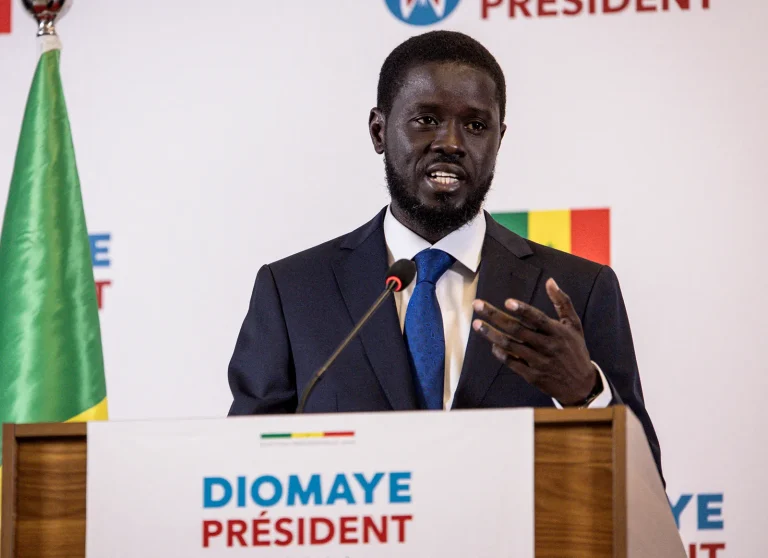Senegal’s President Bassirou Diomaye Faye has unveiled a major shake-up of the country’s gold industry, ordering the creation of a National Gold Trading Centre to assert stronger state control over a sector long plagued by illicit exports.
The move, announced on Wednesday and backed by data from Swiss NGO SWISSAID, comes as the government seeks to plug billions of dollars in lost revenue attributed to gold smuggling.
State takes aim at illicit outflows
Faye said the decision to form the centre was a ‘sovereign imperative’, citing the scale of unrecorded exports and their growing impact on the national economy. Authorities believe centralising gold trading under a new state structure will help curb smuggling networks that thrive in poorly regulated artisanal mining zones.
Research published last year by SWISSAID found that between 2013 and 2022, an estimated 36 to 41 tonnes of gold were illegally smuggled out of Senegal. The losses, the organisation said, amounted to between $2.38bn and $2.71bn over the decade. According to the report, most of the undeclared metal originated from artisanal and small-scale mining operations, where production is significant but often unregistered.
The group warned that the scale of unrecorded gold flows distorts official trade statistics and undermines the state’s ability to benefit from its mineral wealth. Faye’s administration has repeatedly argued that bringing artisanal mining into the formal economy is central to boosting domestic revenue and improving community benefits.
Government orders sweeping mining reforms
Alongside the trading centre, Faye instructed his government to draft a new Mining Code before the end of the year. Officials say the updated legislation will focus on strengthening governance, improving transparency, and modernising regulation across the extractive sector.
The president also ordered the restructuring of public companies operating in the mining space, suggesting that several state entities could face leadership changes or operational reforms. The aim, he said, is to ensure that state participation in the sector reflects ‘good governance and national interest’.
The government has historically struggled to oversee the complex landscape of large-scale mining, artisanal operations, and cross-border trade. The reforms are expected to introduce clearer rules on licensing, production reporting, and export controls.
Gold remains Senegal’s biggest mineral export
Gold continues to dominate Senegal’s extractive industry, with official exports reaching around $244bn in the first half of 2024. The figure, reported in government trade data, represented nearly 30 per cent of the country’s total extractive sector exports during that period.
Analysts say the reforms, if fully implemented, could help Senegal capture greater value from its mineral resources and reduce its exposure to illicit financial flows. But they also warn that change will require strong enforcement, especially in regions where artisanal mining provides livelihoods but operates largely outside formal oversight.
For now, Faye’s administration insists that the new trading centre and Mining Code will serve as cornerstones of a more transparent and accountable industry—one that better reflects the country’s economic priorities and strengthens state revenue.


